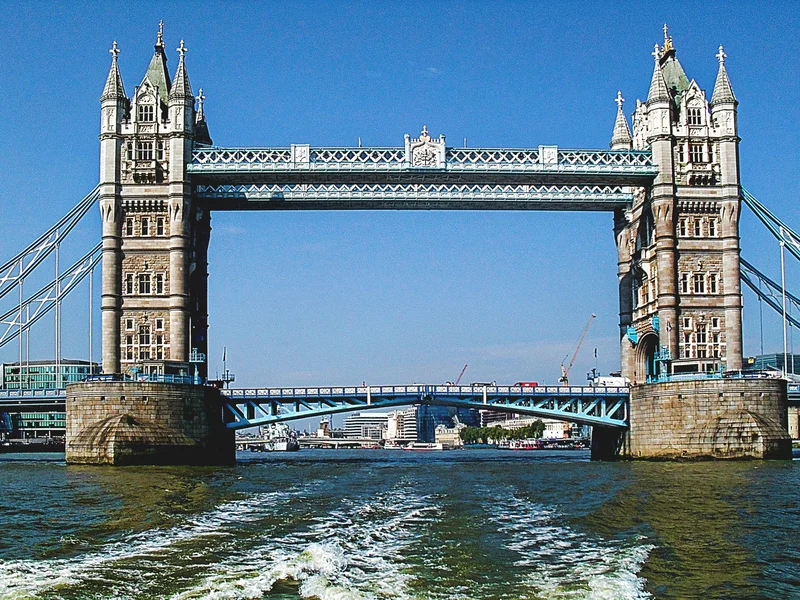London: Layoffs and Housing Confusion
London's Ups and Downs: A Data Analyst's Reality Check
The Michelin Guide vs. Economic Realities
London, as always, presents a fascinating set of contradictions. October 2025 saw nine new London restaurants added to the Michelin Guide (a fairly consistent metric of culinary aspiration, it seems). Nine London restaurants have just been added to the Michelin Guide Michelin highlighted The Chalk Freehouse, noting its blend of "elevated traditional dishes and classic pub surroundings." Others included Lai Rai in Peckham and Town in Covent Garden. All well and good. A vibrant restaurant scene is generally a good sign, right?
But let's juxtapose this with another data point: a November 7th article points to London's housing market being "the most confused in Britain." And then there's the less palatable news: Rockstar layoffs leading to protests outside their London and Edinburgh offices. According to the IWGB, these layoffs targeted employees involved in unionizing efforts. Rockstar claims the employees were "distributing and discussing confidential information," a claim the union disputes. Regardless, layoffs are layoffs (and suggest internal pressures).
So, what's the real story here? Is London thriving, or is it teetering? The Michelin Guide additions suggest affluence and a thriving hospitality sector. The housing market confusion implies instability, and the Rockstar layoffs point to potential economic anxieties within the tech industry. It's a mixed bag, to say the least.
Parsing the Contradictions
The key, as always, is to dig a little deeper and avoid surface-level narratives. The Michelin Guide, while prestigious, reflects a very specific segment of the market. These aren't your average corner cafes; these are establishments catering to a clientele that can afford "elevated traditional dishes." How large is that clientele, really, compared to the overall population struggling with housing costs? That's the crucial question.
The Rockstar situation is even murkier. Layoffs, even if affecting a "small number of individuals," ripple outwards. It creates an atmosphere of uncertainty, potentially impacting consumer spending. And let's not forget the GTA 6 delay (now slated for November 19, 2026, after a second delay). Take-Two CEO Strauss Zelnick remains "confident," but delays often signal deeper development issues. (Delays in this industry are often a canary in the coal mine, so to speak.)

I've looked at enough quarterly reports to know that optimistic statements from CEOs should always be taken with a grain of salt. The numbers will eventually tell the true story, but until then, it's all carefully crafted PR.
And this is the part of the analysis that I find genuinely puzzling. The official line is that the delay is to "polish a title to ensure that it's released in its best possible form." But is it just polishing? Or are there underlying technological or creative roadblocks that aren't being disclosed?
Then we have the odd case of the mistakenly released prisoners. Two prisoners were released from Wandsworth Prison in error, one of whom was a sex offender. While both were eventually re-arrested, the fact that this happened at all speaks volumes about the state of the UK's prison system. Justice Secretary David Lammy blamed 14 years of Conservative rule for the issues, but whoever is to blame, such errors don't exactly inspire confidence.
London: A City of Micro-Economies
London isn't a monolith; it's a collection of micro-economies, each with its own trajectory. The high-end restaurant scene can thrive even as other sectors struggle. Luxury goods, for example, often maintain demand even during economic downturns (a phenomenon I've seen repeatedly in my previous life crunching hedge fund data).
The housing market confusion, the layoffs, the prison mishaps – these are all data points suggesting underlying systemic stresses. They don't necessarily negate the Michelin Guide additions, but they do contextualize them. It's not a simple story of boom or bust; it's a more nuanced picture of uneven distribution and potential vulnerabilities. The rising tide, it seems, isn't lifting all boats.
The Data Requires a Second Look
London's allure remains strong, but the data suggests a city grappling with internal tensions. The simultaneous existence of Michelin-starred restaurants and housing market anxieties isn't a paradox; it's a reflection of a complex, multifaceted reality. It's a city of haves and have-nots, and the gap between them may be widening. The real question is: what happens when that gap becomes too wide to ignore?
The Glittering Facade Is Cracking
London is a city that can't seem to get its act together.
Tags: london
Dodge Chrysler Jeep: Bankruptcy Filing and Brand Future
Next PostNEAR Protocol's Intent Layer: What's Driving This Surge?
Related Articles
